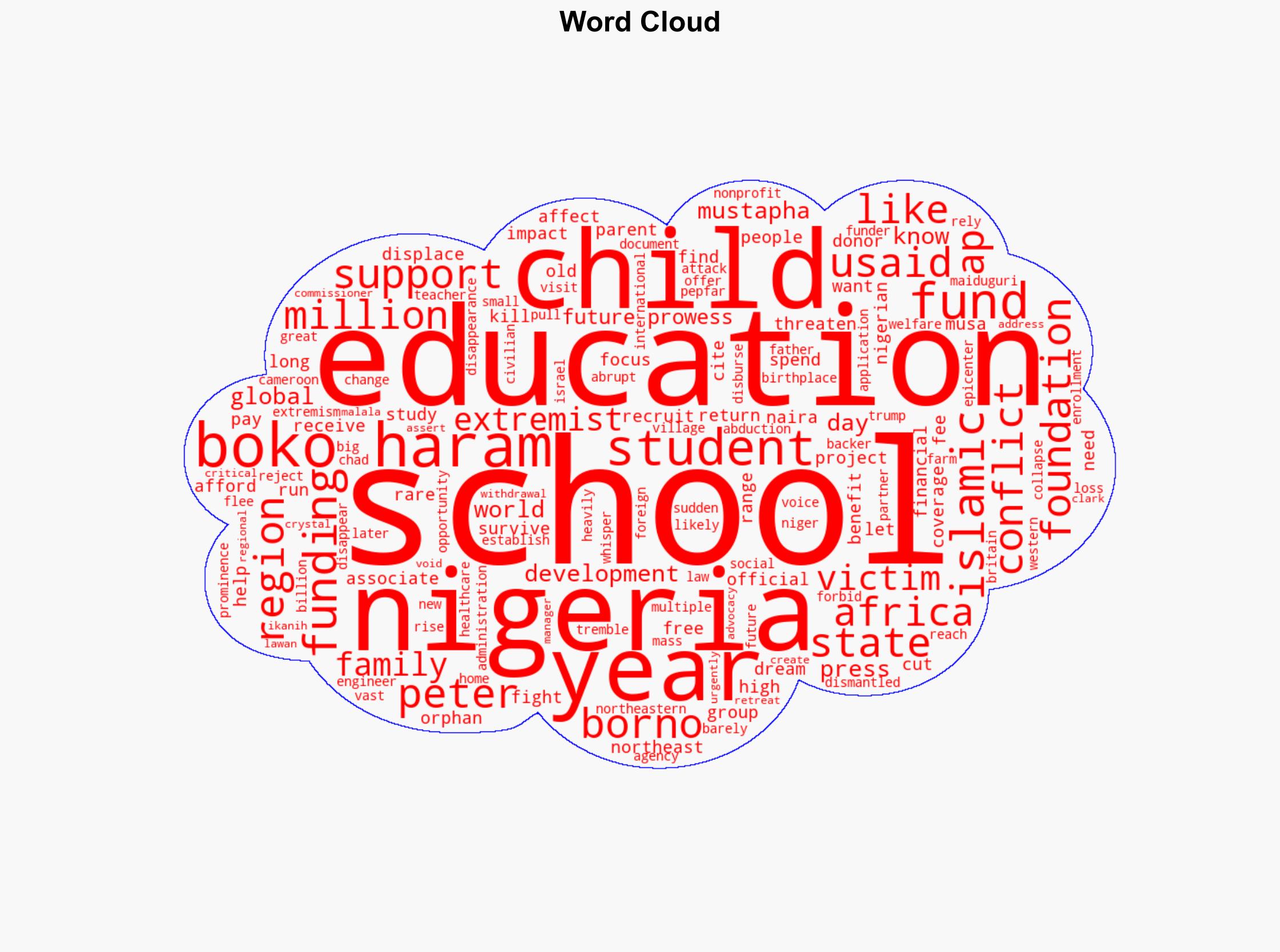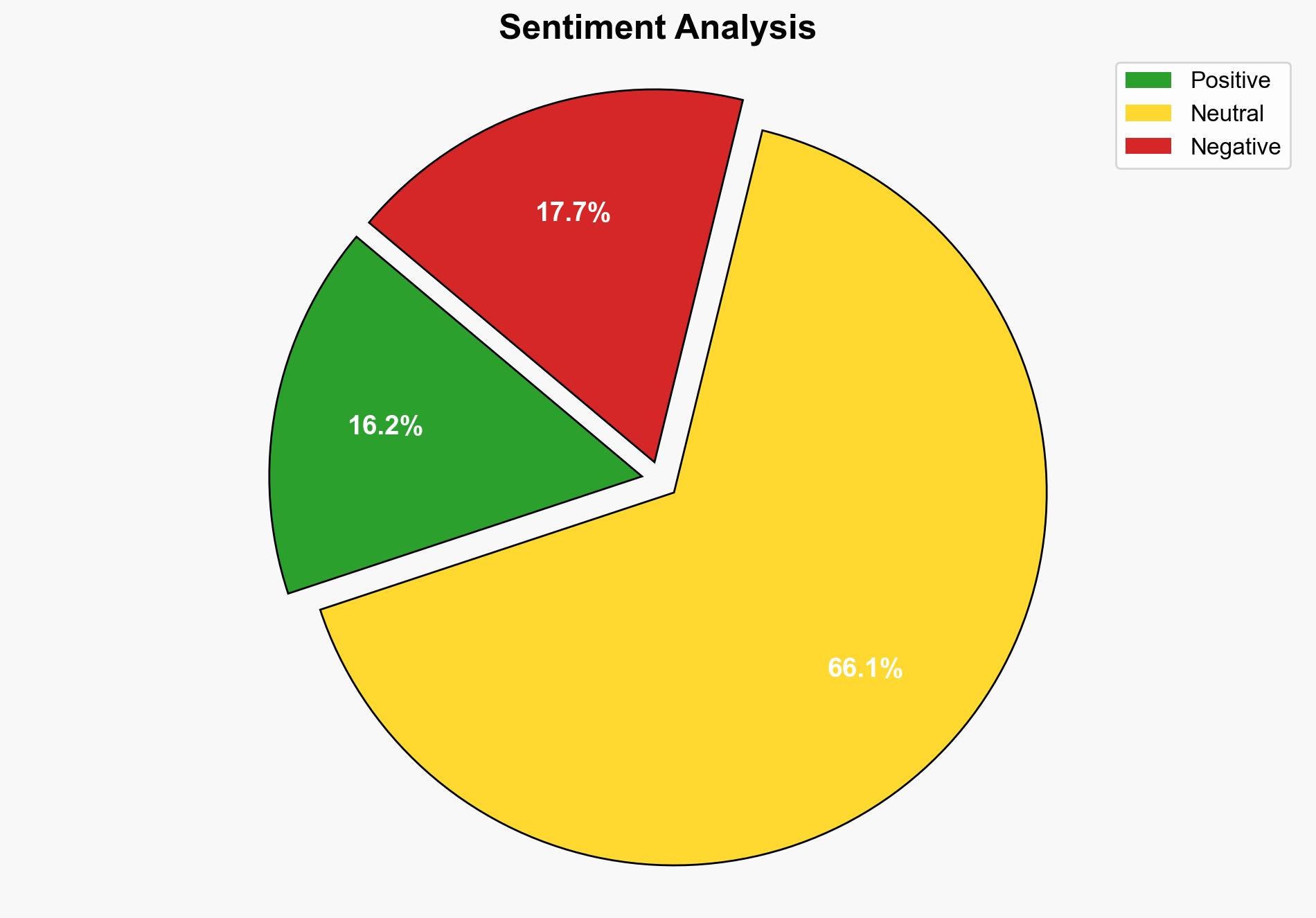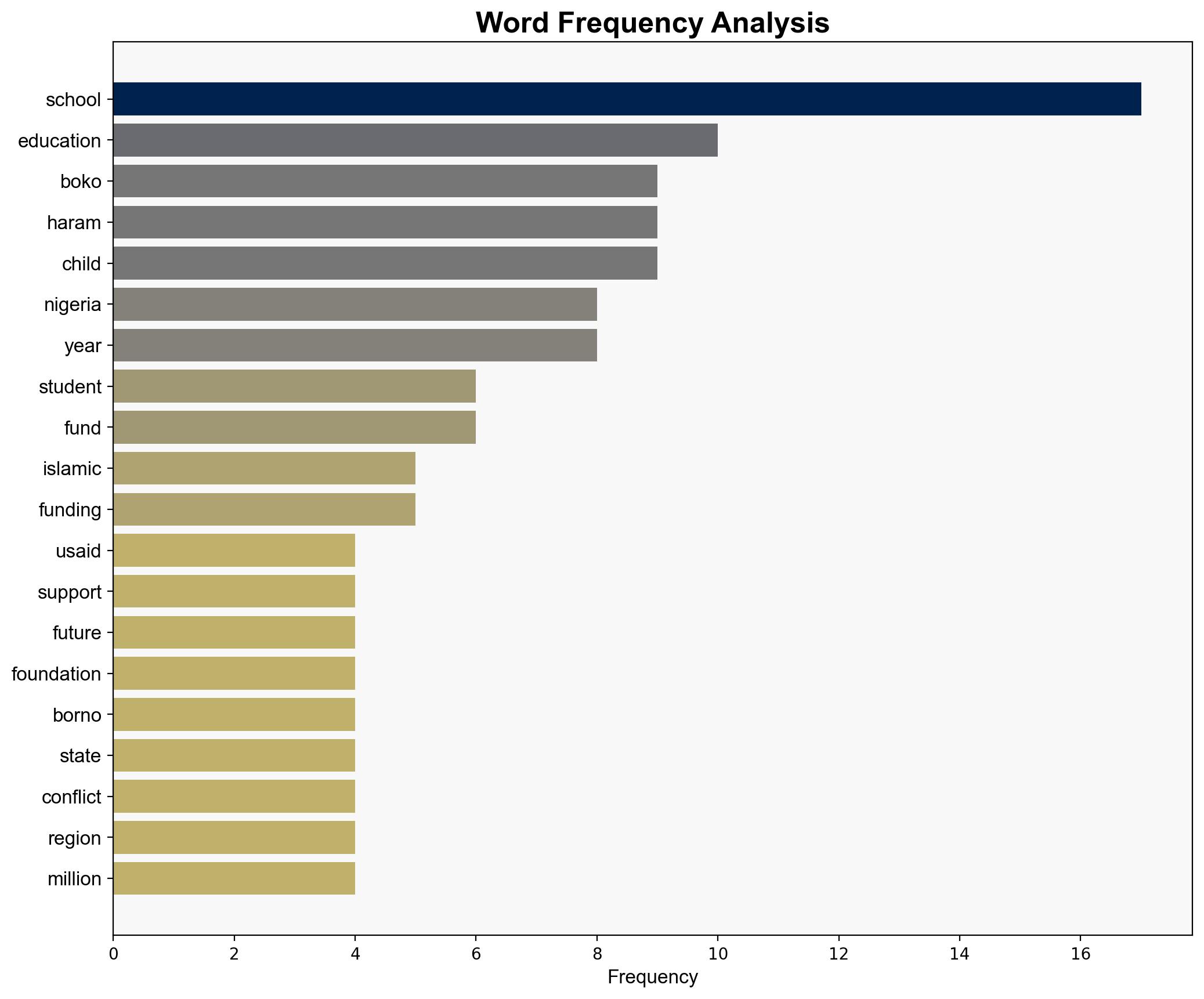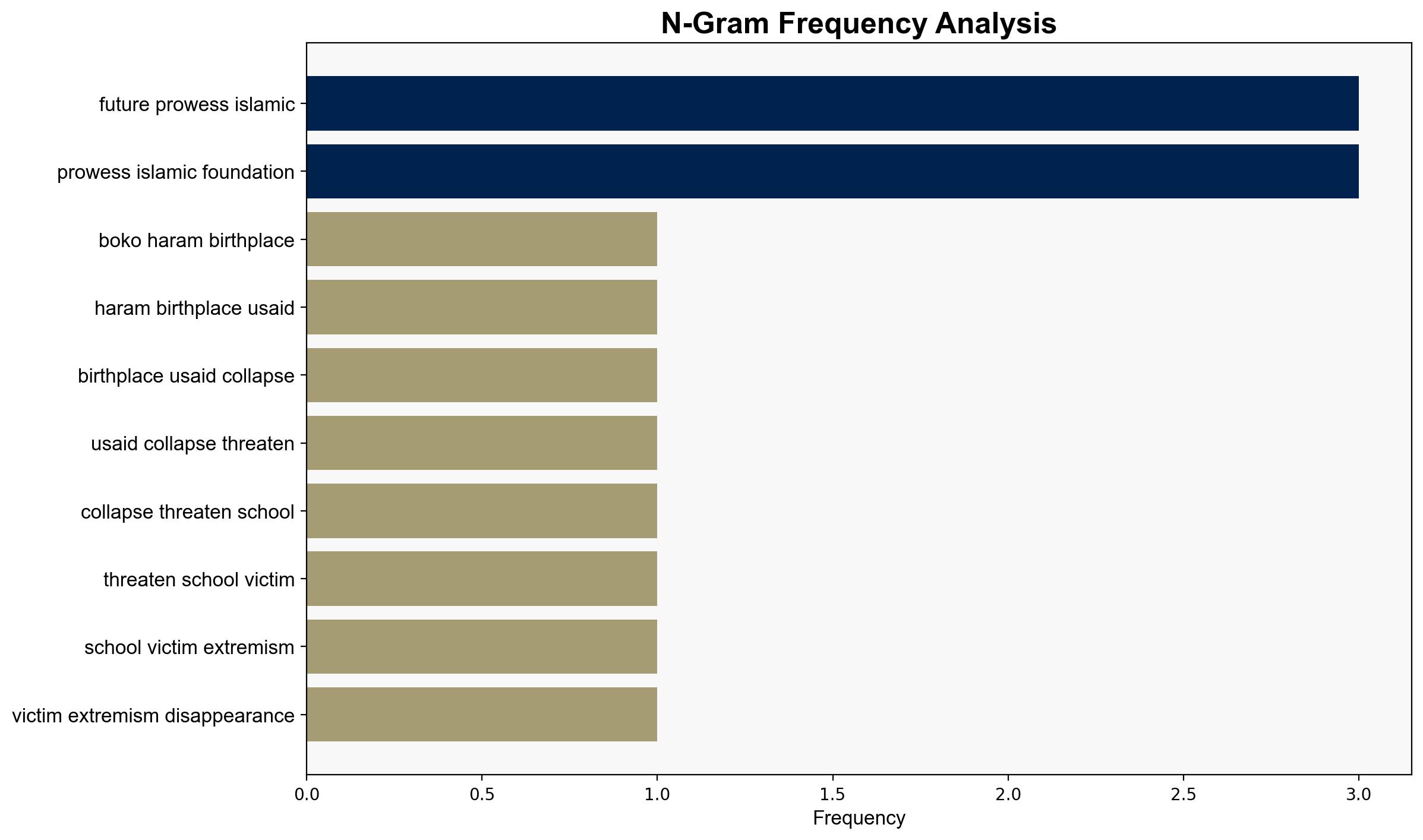In Boko Haram’s birthplace USAID’s collapse threatens a school for victims of extremism – ABC News
Published on: 2025-08-30
Intelligence Report: In Boko Haram’s birthplace USAID’s collapse threatens a school for victims of extremism – ABC News
1. BLUF (Bottom Line Up Front)
The withdrawal of USAID funding from educational programs in northeastern Nigeria, particularly in regions affected by Boko Haram, poses a significant risk of increased radicalization and instability. The most supported hypothesis is that the funding gap will exacerbate vulnerabilities, leading to a rise in extremist recruitment. Confidence Level: Moderate. Recommended action includes seeking alternative funding sources and enhancing local government engagement to sustain educational initiatives.
2. Competing Hypotheses
1. **Hypothesis A**: The withdrawal of USAID funding will lead to increased recruitment by extremist groups like Boko Haram due to the lack of educational opportunities and support for vulnerable children.
2. **Hypothesis B**: The local government and other international donors will fill the funding gap, mitigating the risk of increased extremist recruitment and maintaining educational opportunities for affected children.
Using Bayesian Scenario Modeling, Hypothesis A is more likely due to the current economic constraints faced by potential alternative donors and the historical inefficacy of local government interventions in the region.
3. Key Assumptions and Red Flags
– **Assumptions**: It is assumed that the local government lacks the capacity and resources to adequately replace the lost funding. Additionally, it is assumed that extremist groups will exploit the situation to recruit vulnerable youths.
– **Red Flags**: The potential over-reliance on international aid without developing sustainable local solutions. The abruptness of the funding withdrawal may not have allowed sufficient time for contingency planning.
– **Blind Spots**: The potential for non-traditional actors (e.g., private sector, NGOs) to step in and provide support is not fully explored.
4. Implications and Strategic Risks
– **Cascading Threats**: The lack of educational opportunities could lead to increased poverty and social unrest, further destabilizing the region.
– **Potential Escalation**: If extremist recruitment increases, this could lead to a resurgence of violence and a broader regional security threat.
– **Economic Impact**: Long-term economic development in the region could be stunted, affecting national stability.
– **Psychological Impact**: The loss of hope and opportunity could have profound effects on the youth, making them more susceptible to extremist ideologies.
5. Recommendations and Outlook
- **Mitigation**: Engage with international partners to identify alternative funding sources. Encourage local government to prioritize education in budget allocations.
- **Opportunities**: Leverage private sector partnerships to support educational initiatives.
- **Scenario Projections**:
– **Best Case**: New funding sources are secured, and educational programs continue without interruption.
– **Worst Case**: Increased extremist recruitment leads to heightened regional instability.
– **Most Likely**: Partial funding is secured, but some educational programs face cutbacks, leading to increased vulnerability among children.
6. Key Individuals and Entities
– **Israel Peter**: Affected student whose educational prospects are threatened.
– **Crystal Ikanih-Musa**: Africa regional advocacy manager, Malala Fund.
– **Lawan Clark**: Borno State Commissioner.
– **Zannah Mustapha**: Founder of the Future Prowess Islamic Foundation.
– **Yusuf Mustapha**: Graduate affected by Boko Haram violence.
– **Malik Samuel**: Nigerian security researcher.
7. Thematic Tags
national security threats, counter-terrorism, regional focus, education, international aid





